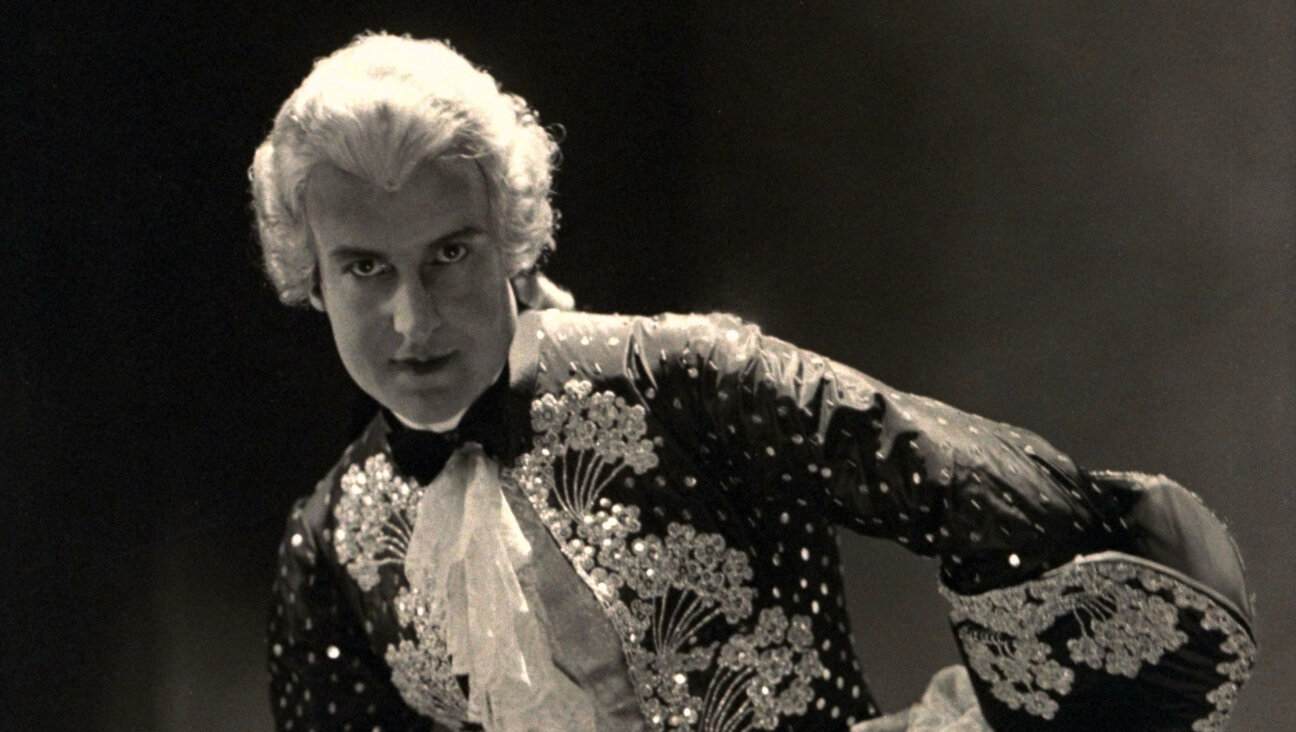Anti-Semitism Allegations Prompt Penguin To Independent Inquiry Of Controversial Book

The offices of Random House in Central London Image by Getty/LEON NEAL/Staff
Days after defending a book deemed anti-Semitic by online critics, Penguin Random House announced an independent inquiry into its content led by Rabbi Baroness Julia Neuberger.
The book, Colonel Pedro Baños’s “How They Rule Us,” came under scrutiny after the British author Jeremy Duns discovered that the volume originally contained a number of allusions to anti-Semitic speculation about the Rothschild family controlling the course of global events. Those allusions, which were published in the book’s original Spanish edition, were removed from Penguin imprint Ebury Press’s English translation.
On June 11, Penguin responded to charges that the book was anti-Semitic in a statement to The Guardian, saying “that whilst the author clearly expresses robust opinions about geostrategies and geopolitics, focusing on the historical, psychological and social reasons for the alleged global domination of many different groups, he does not in our opinion express views in this publication, including in the parts omitted, that are antisemitic [sic].”
The Guardian reports that Neuberger was invited to launch an inquiry June 14; she’ll work with the help of outside consultants. Neuberger is the author of the May 2019 release “Antisemitism: What It Is. What It Isn’t. Why It Matters.” In bringing her on, Penguin Random House chief executive Tom Weldon said, per the Guardian, that the company was taking “an unusual step, which is a mark of how seriously we view the complaints made and the complexity of the sensitivity of the issues involved.”
In a June 17 radio interview with BBC’s Radio 4, Neuberger, who has yet to conclude her inquiry, said that she believed the U.K. version of the book was not anti-Semitic, and that the images of the tentacles used on its cover — a trope that has been used to connote anti-Semitic ideas about Jewish control —wasn’t either.
But, Neuberger said, the words about the Rothschilds, which numbered 30,000 and were excised in the English translation, “betray a sort of fascination,” with the banking family. This in and of itself is not anti-Semitic, she argued, but does recall troubling conspiracy theories like those peddled in “The Protocols of the Elders of Zion,” the infamous anti-Semitic screed from Tsarist Russia.
“I think what would push it over the line is if he’s known to have made lots of allusions, if you like, to some kind of Jewish conspiracy,” Neuberger concluded.
Last week Penguin told The Guardian there were no “known reputational issues with the author.”
On Twitter, Duns replied to Neuberger’s radio appearance by listing interviews he found in which Baños appearing to pay lip service to conspiracies about, among other things, Israel’s involvement in the JFK assassination.
Baroness Neuberger says Baños would be over the line ‘if he’s known to have made lots of allusions to some kind of Jewish conspiracy’. He has: Israel behind JFK assassination etc but also all these interviews about this book: https://t.co/27t7DkmMOT
— Jeremy Duns (@JeremyDuns) June 17, 2019
On June 18, The Jewish Chronicle reached out to Penguin Random House’s U.K. chair, Baroness Gail Rebuck, about the controversy over Baños’s book. Rebuck, who is Jewish, declined to comment.
PJ Grisar is the Forward’s culture intern. He can be reached at [email protected]
A message from our Publisher & CEO Rachel Fishman Feddersen

I hope you appreciated this article. Before you go, I’d like to ask you to please support the Forward’s award-winning, nonprofit journalism so that we can be prepared for whatever news 2025 brings.
At a time when other newsrooms are closing or cutting back, the Forward has removed its paywall and invested additional resources to report on the ground from Israel and around the U.S. on the impact of the war, rising antisemitism and polarized discourse.
Readers like you make it all possible. Support our work by becoming a Forward Member and connect with our journalism and your community.
— Rachel Fishman Feddersen, Publisher and CEO
























